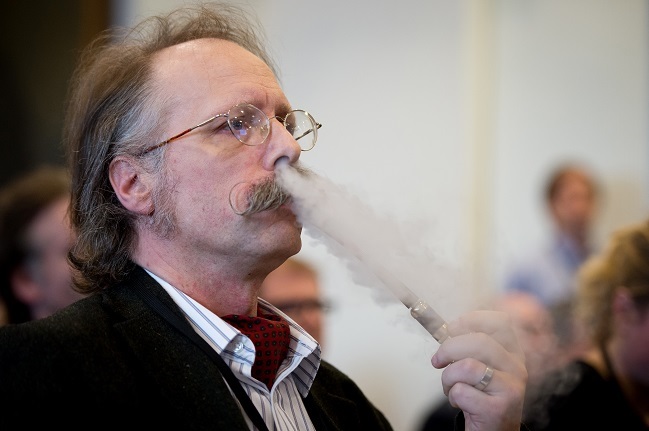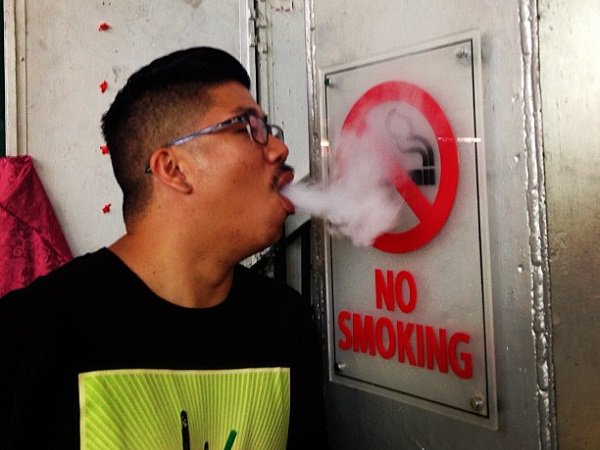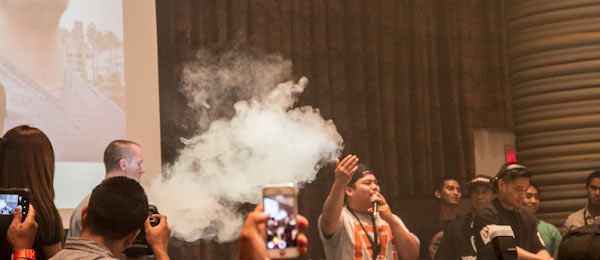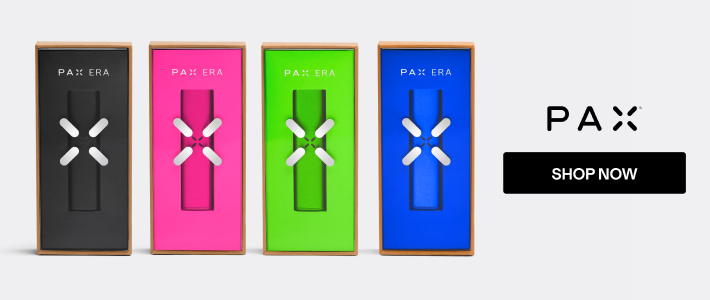The issue of e-cigarette use in public places is a hot-button on both a political and a social level. While states mull indoor usage bans and incorporate e-cigs into existing smoke-free laws, vapers are left in a strange limbo when it comes to e-cigarette etiquette. Vaping doesn’t release the vast majority of harmful chemicals found in cigarette smoke, but to people who learn about e-cigarettes from scare-stories in the news, we can look like noxious, fog-breathing polluters. So what do we do? Should we vape freely when permitted by law and politely inform anybody who thinks it’s dangerous that they’re clearly hysterical, or skulk off into the smoking areas under the weight of unspoken social pressure? How do you vape in public without making e-cig users look like inconsiderate jerks?

You Can’t Vape Anywhere
One of the most commonly-cited benefits of switching to e-cigarettes (particularly among sellers of beginner-friendly models) is that you can vape anywhere, or if they’re being reasonable, almost anywhere. Well, you definitively can’t vape anywhere – businesses can choose what is allowed on their premises – and frankly, even the “almost anywhere” claim is growing increasingly tenuous, with local transport authorities, planes and some local governments enacting bans on e-cig usage. In fact, the situation appears to be moving more towards smoking-like treatment rather than the “vape anywhere” approach.

Even outside of official bans, there are many situations – elevators, for example – where vaping freely would make you seem like a bit of a jerk. In a restaurant, while opinions may differ on this, it’s obviously a little rude because people are eating there. You’re chocolate and peanut butter e-liquid probably smells delicious, but would you want to get a whiff of that when you were trying to enjoy a steak or some lasagna? No, because you want to taste and smell your food!
Be Armed With Information
However, there is plenty of evidence to suggest that vaping in public isn’t going to put anyone at risk, or at least not at any significant or even quantifiable level of risk. Igor Burstyn’s review of chemical analyses of e-cig vapor bears this conclusion, the second-hand levels of contaminants in e-cig vapor can be legitimately compared to human breath or ordinary outdoor air, and several other studies have found little to no risk from e-cig vapor. To explain it in the simplest way possible, the levels of contaminants are comparable to those found in things like gums and patches, and it’s therefore unlikely that they’ll pose any serious risks to first-hand users. With no credible evidence of first-hand risk, when the vapor is diluted by the air from the room you’re in, the risk is obviously going to be even smaller. It’s good to know this stuff, though, because if you encounter any genuine concern from people, you will be able to explain that it really isn’t anything to be concerned about.
The Importance of Asking
You can be fairly certain that you aren’t going to harm anyone, but you might make them uncomfortable or otherwise upset. Additionally, it’s hard to know whether many establishments are OK with vaping, because most don’t have specific signs addressing e-cig use. The solution is to simply ask. At the bar, ask the barman if you’re allowed to vape, and if he or he says no, then head outside with the smokers. We don’t want to, but it’s better to endure a bit of cold than to flout an establishment’s rules and give people the impression that vapers are disrespectful or are just looking for a way to exploit “loopholes” in smoke-free laws. Similarly, if you’re in close proximity to somebody when you’re vaping, it can’t hurt to ask if they’re OK with it. According to a recent survey, two thirds of Americans don’t really mind people vaping near them, but asking permission is still the most polite way to go.
Public Cloud-Chasing is a No-No

Vapers love clouds. Our exhaled cumulus clumps of white vapor bring us pleasure, but the bigger your clouds get the more obnoxious it is to blow them in public (and particularly in enclosed) spaces. A thin veil of vapor is definitely different to a dense fog of nicotine-laced PG and VG, and even though more vapor obviously means greater quantities of chemicals, the main concern is with appearance. The real thing that makes public vaping an issue is its aesthetic similarity to public smoking. Looking from an outsider’s perspective, even if it was pure water vapor we were exhaling, a dense cloud of it would still make people feel less comfortable than a subtle stream of it. The bigger your clouds, the more you seem like an unwanted fog machine. If you’re in a public place where people are cool with vaping, you can still be discreet by blowing your vapor downwards and holding it in for a little longer before exhaling. Enjoy huge plumes of vapor, by all means, but do it in the comfort of your own home or possibly in an especially vape-friendly environment like a brick-and-mortar vape store.
Respect Other People’s Wishes (Even if They’re Stupid)
This really all comes down to having respect for other people. As RiP Trippers argues, it’s just not nice to impose your hobby on somebody else, especially if it makes them feel uncomfortable. They haven’t consented to be exposed to your vapor, so you shouldn’t force it upon them, especially since they will inhale small amounts of nicotine in the process. Their concerns may be (in fact: are) unfounded, but that doesn’t mean they should be ignored, especially if you’re concerned about how vapers look on the whole.
Conclusion: Don’t be a Jerk
In a nutshell, you should heed the following advice when vaping in public: don’t be a jerk. If you’re outside, the only thing you need to do is not blow vapor directly towards somebody’s face, but if you’re inside it’s important to ask permission, and if it’s granted, don’t abuse the privilege by completely fogging out the room. Making some extra effort to respect non-vapers and non-smokers isn’t just being polite, it’s also showing that vapers on the whole are considerate people, and hopefully changing some minds on the indoor usage issue in the process.

